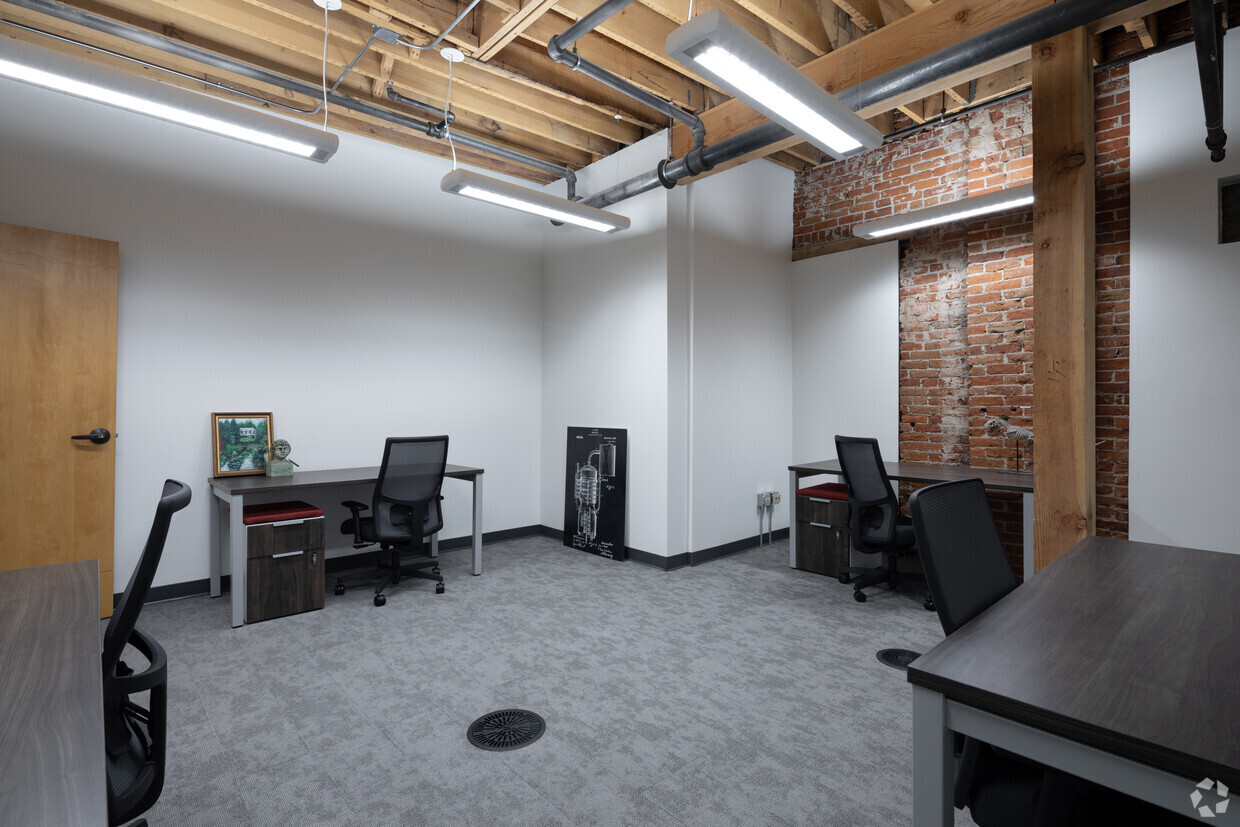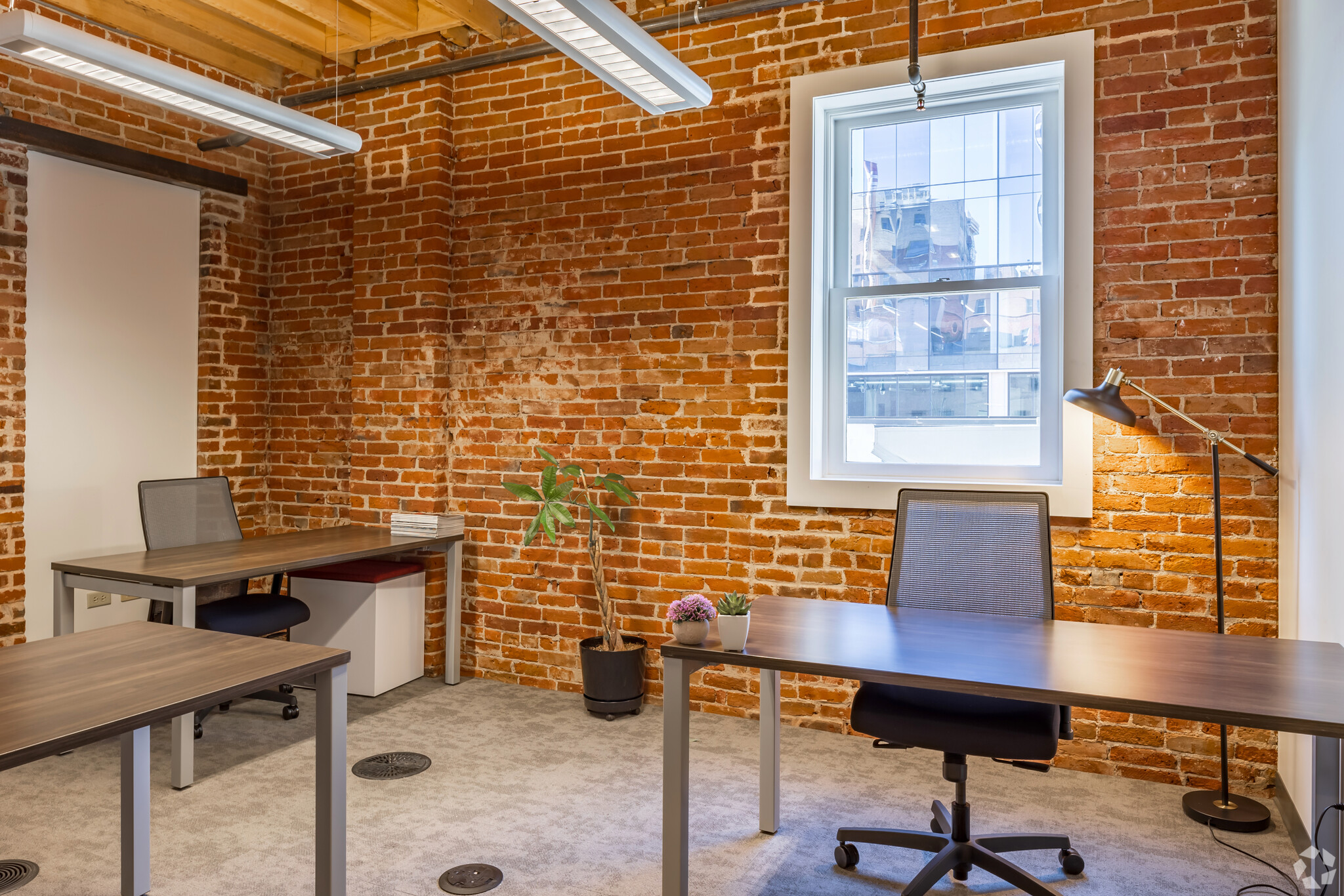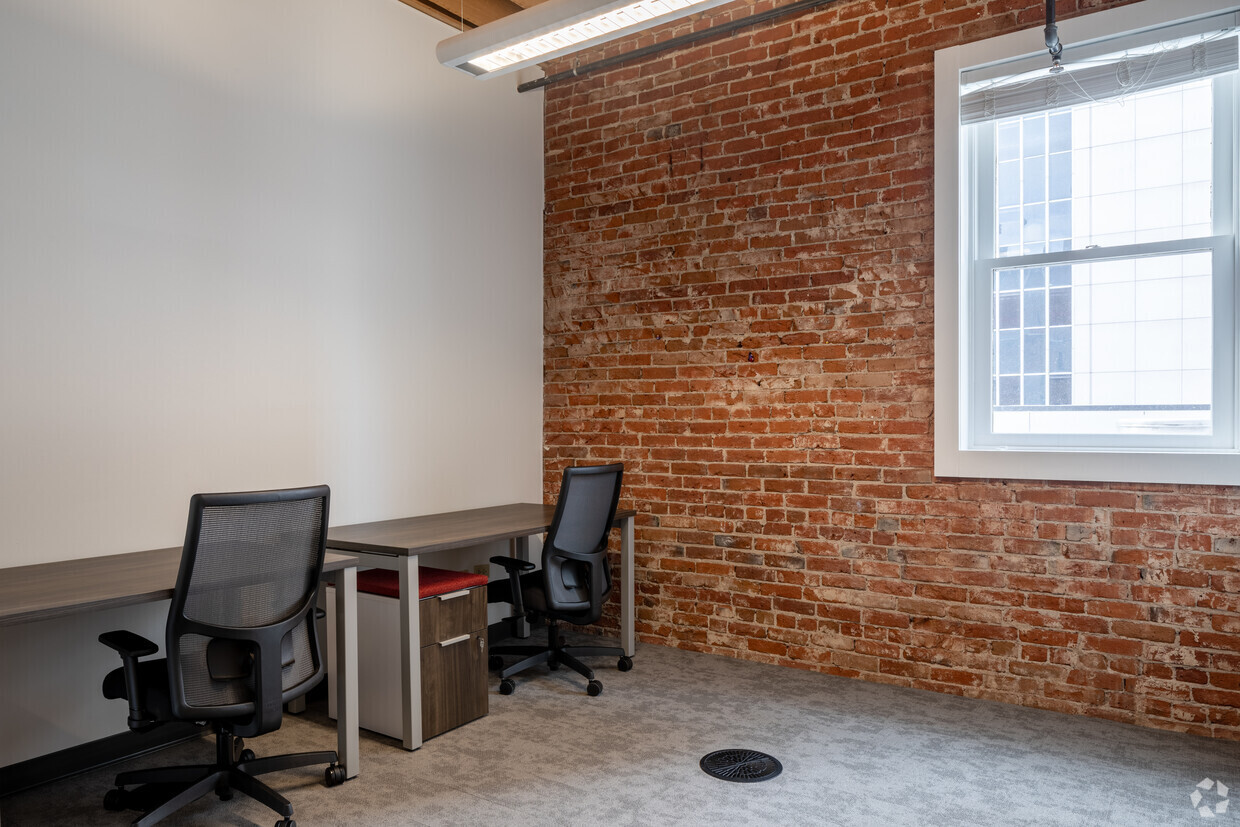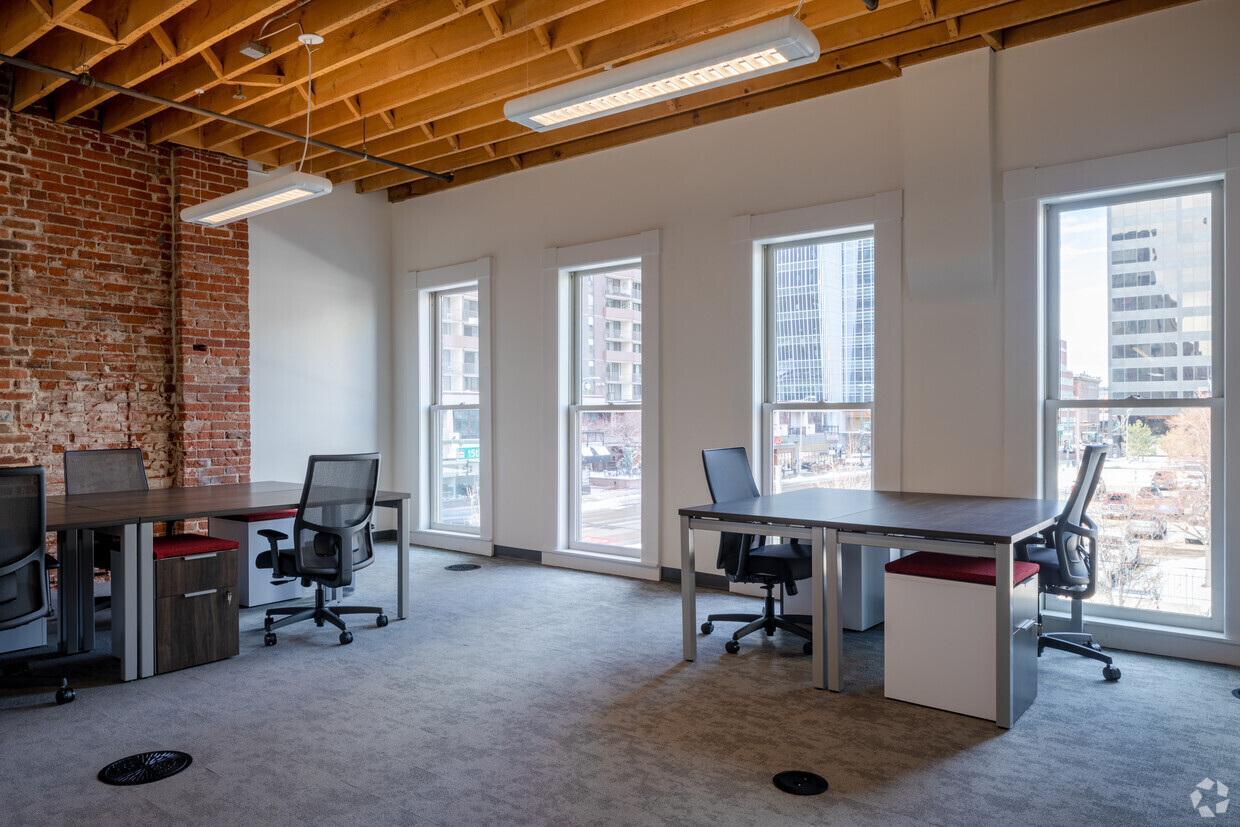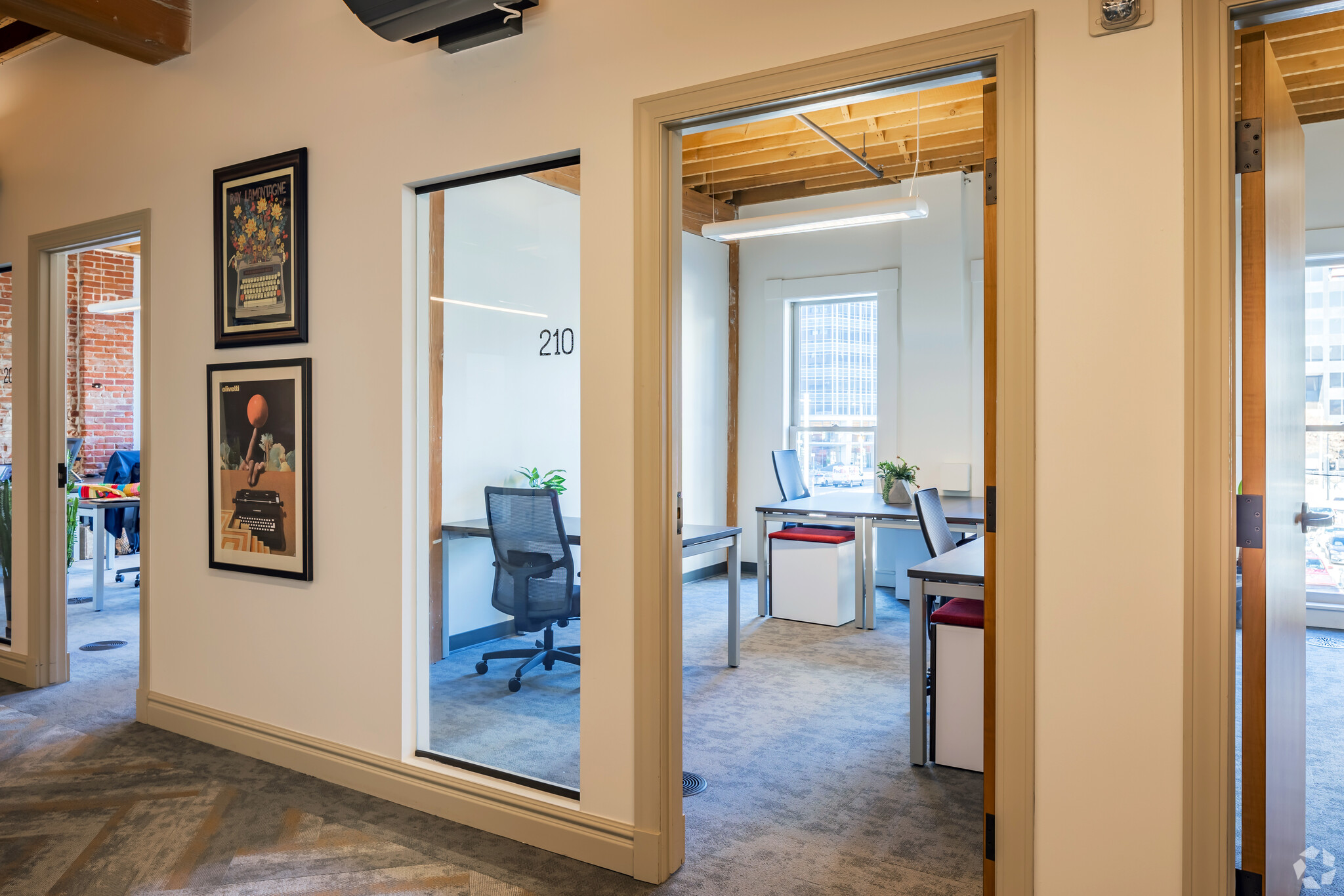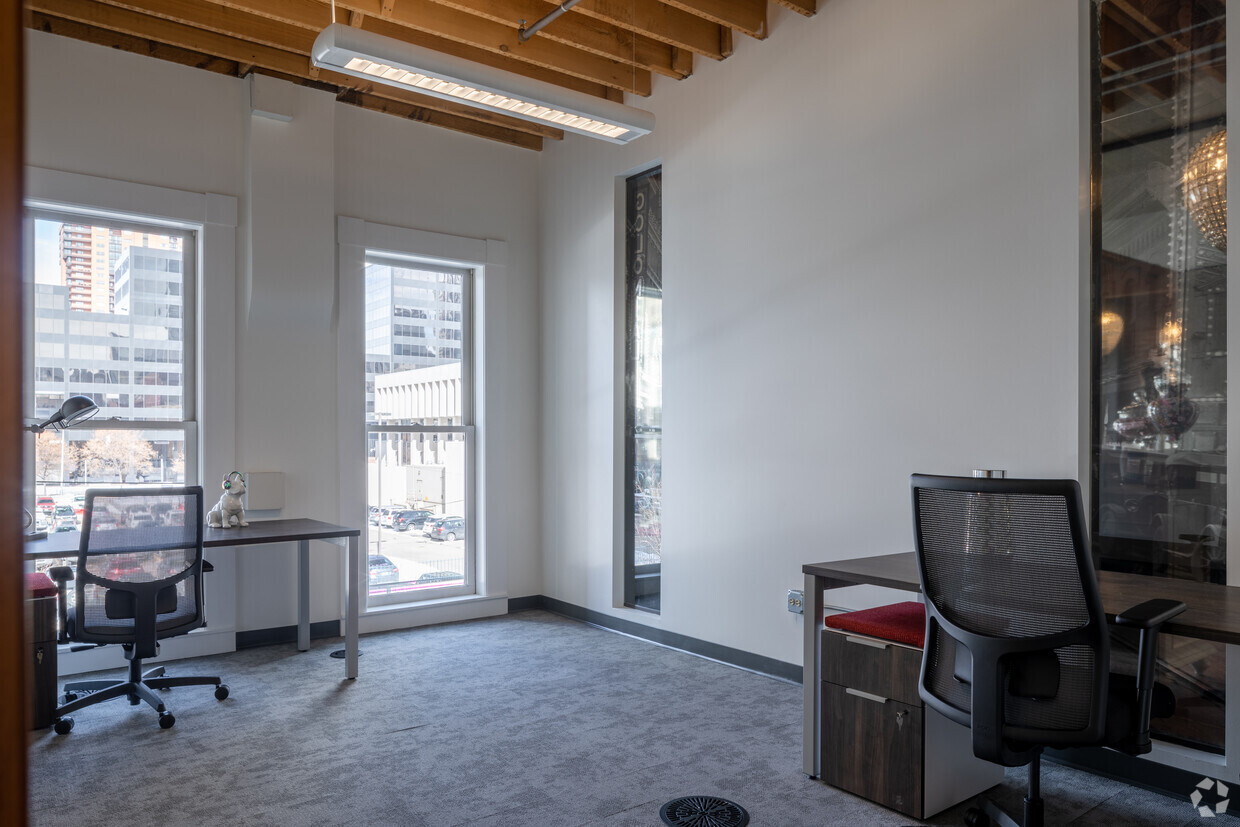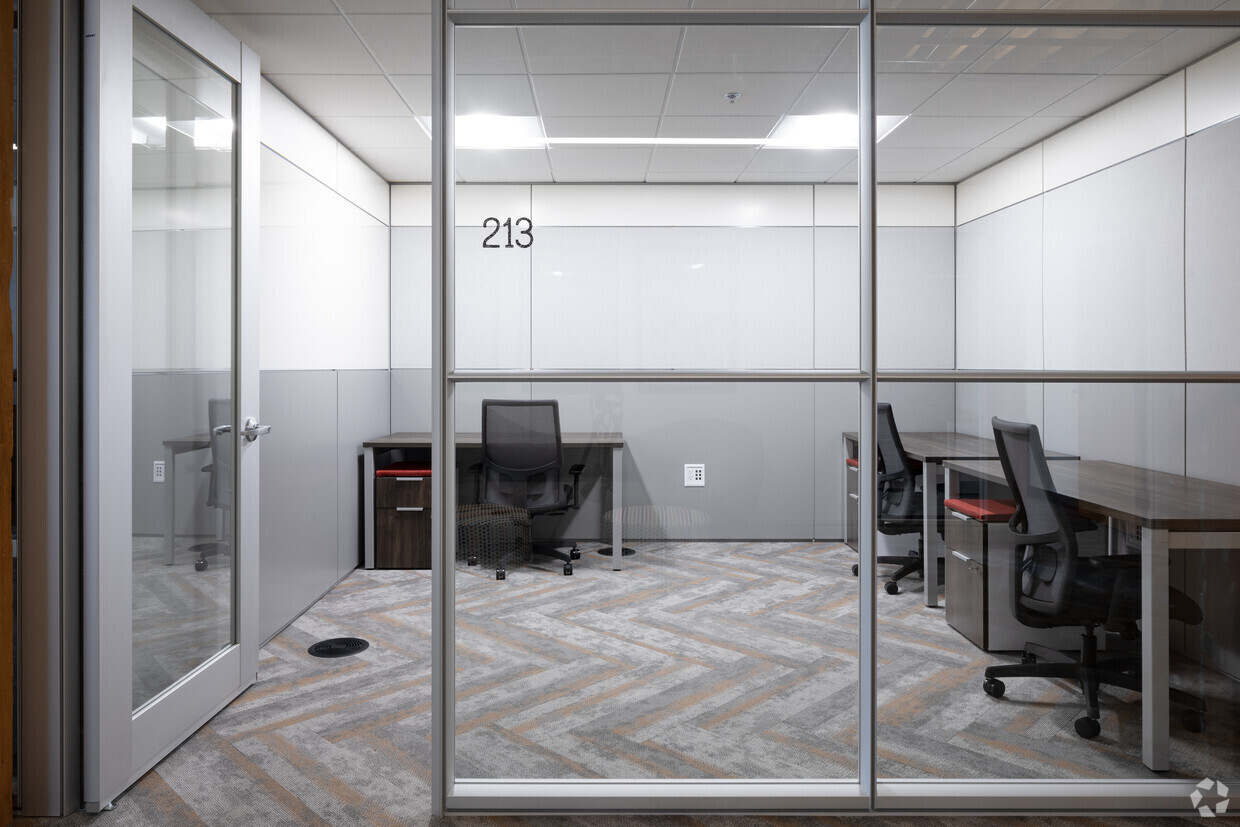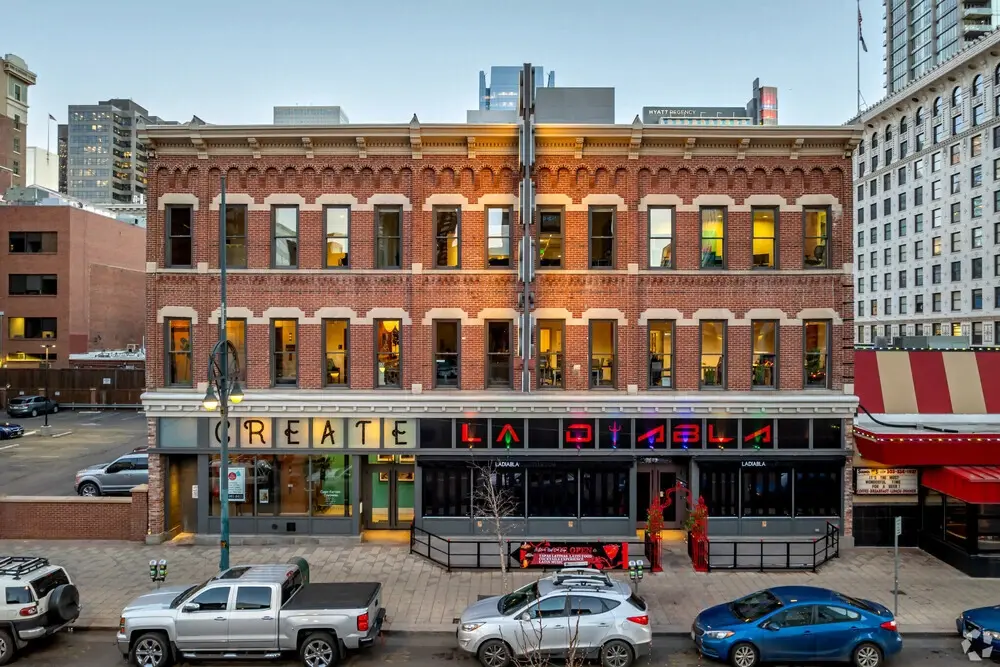

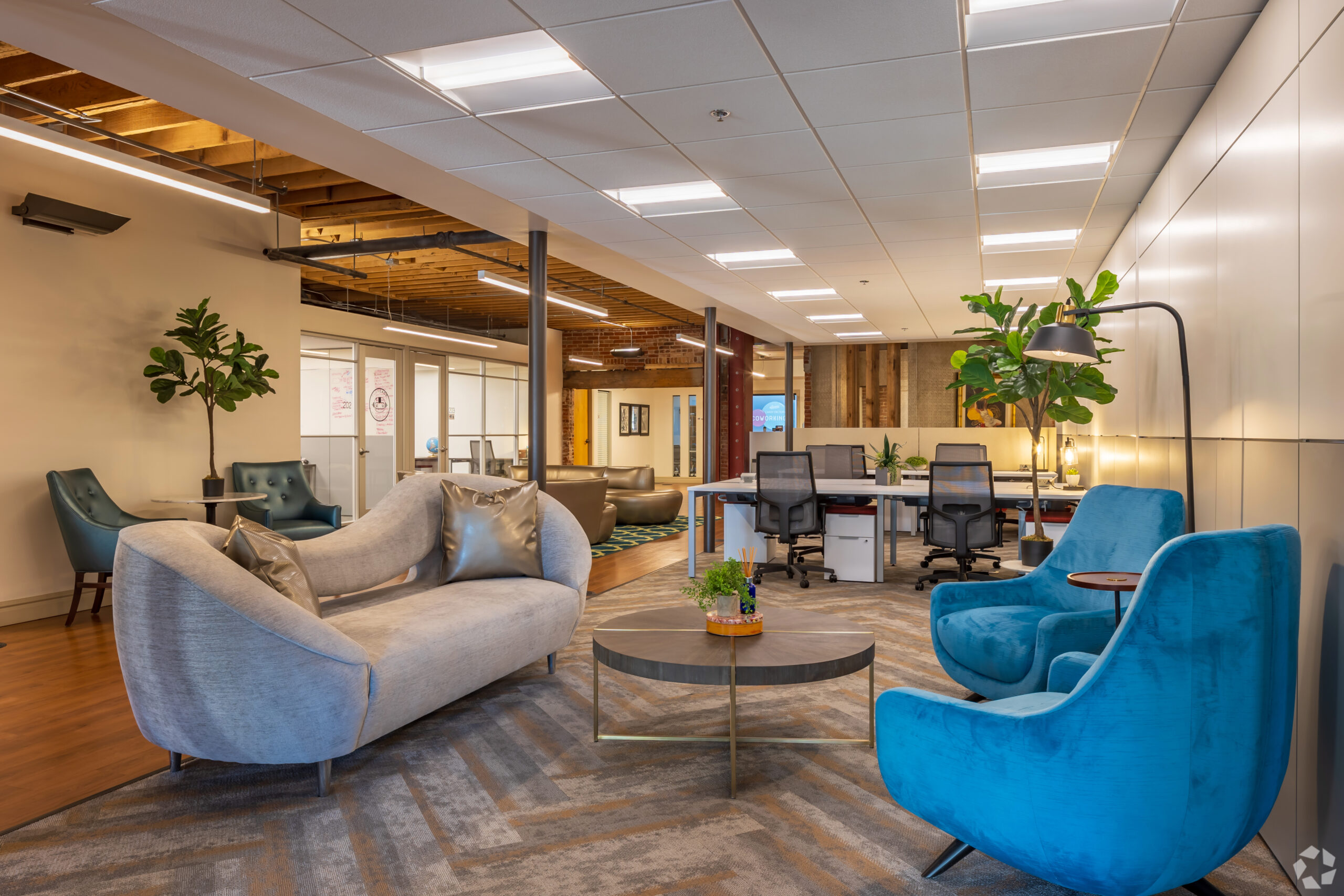
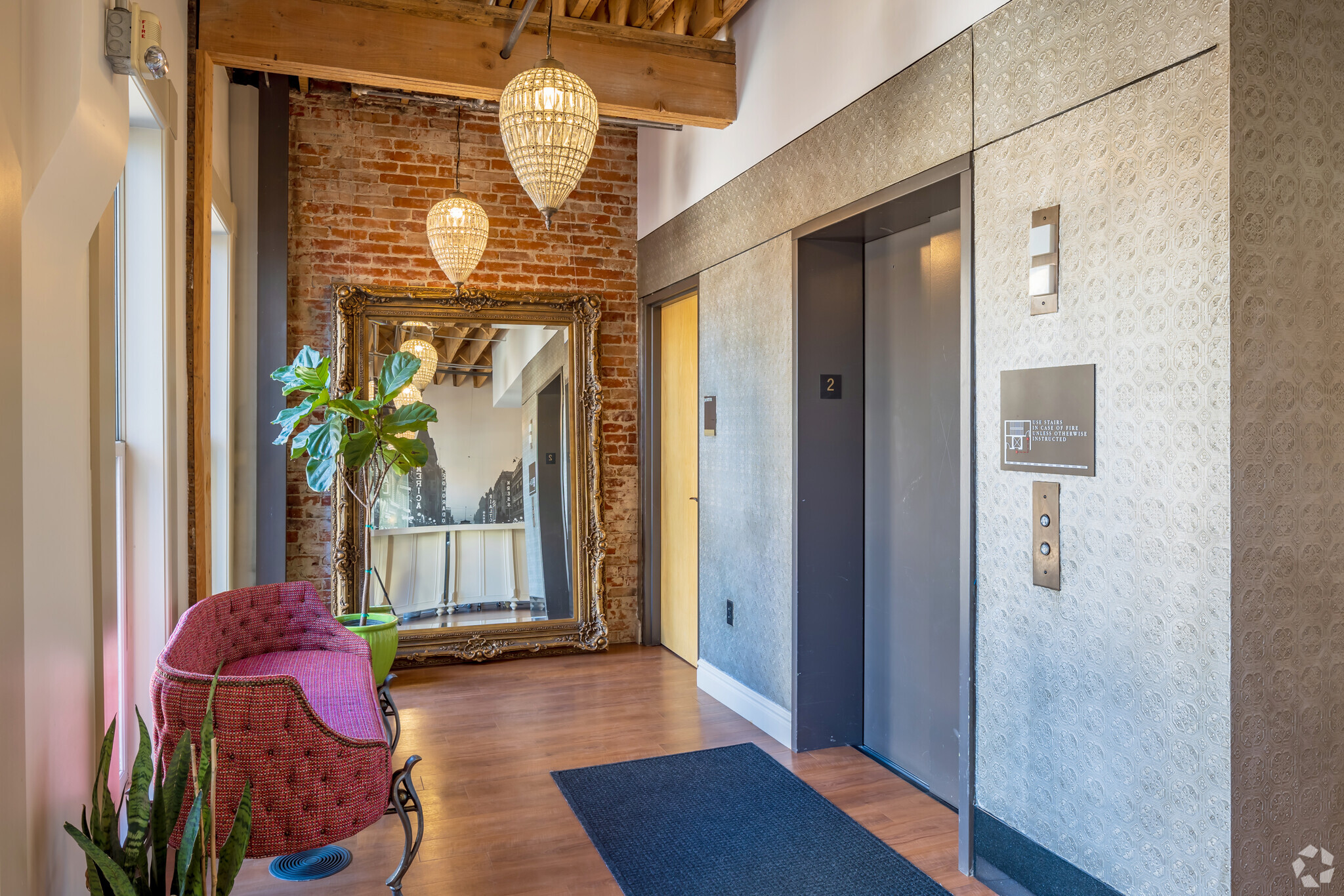
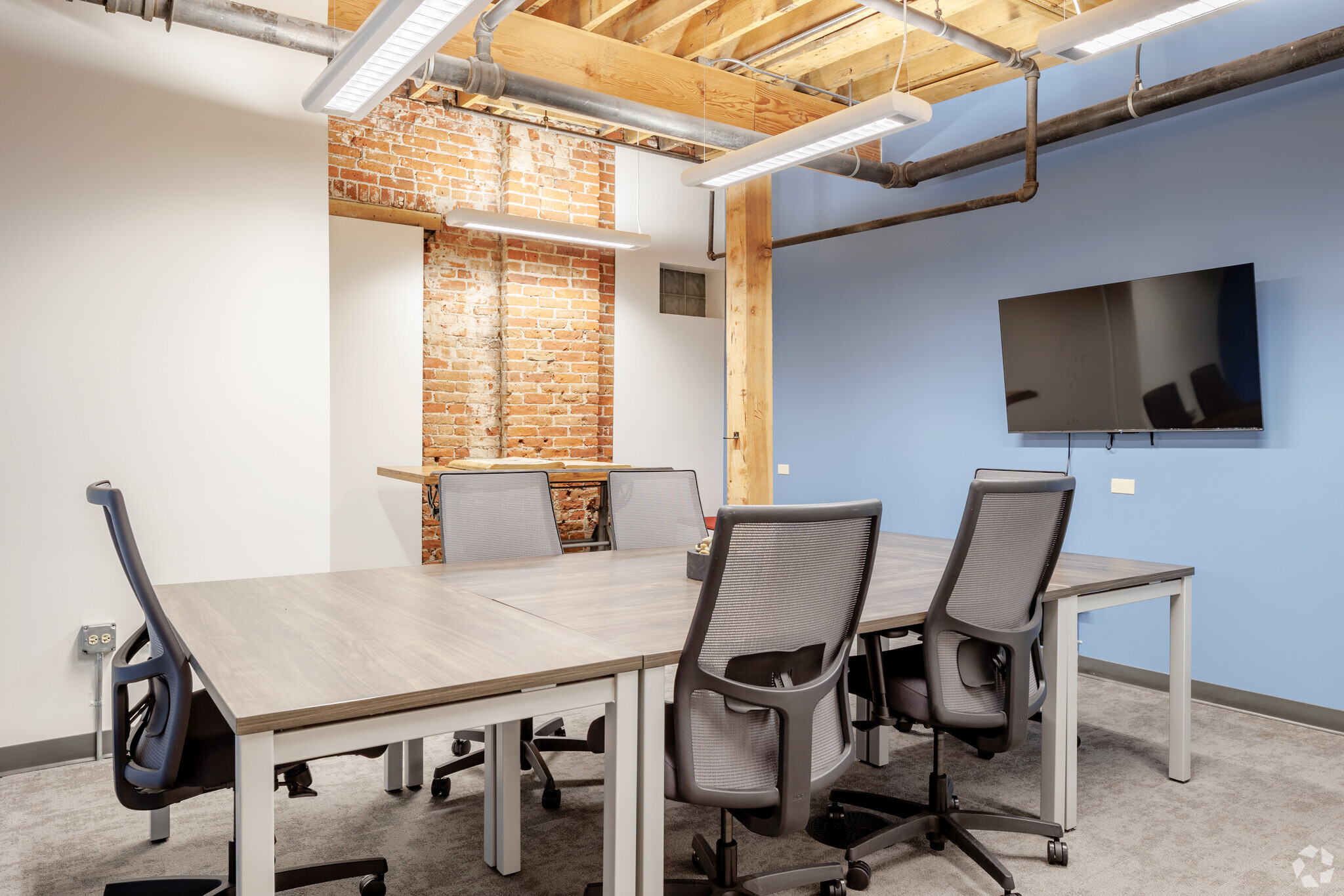

Highlights
Candy Factory Coworking offers flexible space solutions, including private offices, team rooms, shared workspaces, and meeting rooms.
Fully furnished spaces with inviting common areas, high-speed internet, networking events, state-of-the-art equipment, and on-site staff.
Centrally located around destinations like 16th Street Mall, Denver Performing Arts Complex, Colorado Convention Center, hotels, museums, and more.
Easily accessible with a location near key routes like Speer Boulevard without going through downtown congestion and an RTD stop is a few blocks away.
ALL AVAILABLE SPACES(11)
2nd Floor, Suite 201 | 1-6 people | 211 SF | $1,436 / MO
Private Suite 201, a unique and charming workspace with an interior-facing design featuring captivating exposed brick. This distinctive suite is tailor-made to accommodate up to eight desks, making it the perfect choice for a dynamic team seeking an inspiring and collaborative environment.
2nd Floor, Suite 203 | 1-3 people | 154 sf | $926.05 / Mo
Suite 203, thoughtfully designed to comfortably host up to three desks, effortlessly blends functionality and style right in the heart of Denver, catering to the needs of small teams and solo professionals alike, all while enhancing the quality of your work experience.
2nd Floor, Suite 204 | 1-5 people | 176 SF | $1,232 / Mo
Private Suite 204, a character-filled workspace with three large windows offering an abundance of natural light and showcasing the timeless charm of exposed brick. This inviting suite is thoughtfully designed to comfortably accommodate up to five desks, making it an excellent choice for a team that values a dynamic and inspiring work environment.
2nd Floor, Suite 205 | 1-5 people | 192 SF | $1,700/ MO
Private Suite 205, a captivating workspace featuring exposed brick, character and charm. This well-designed suite offers ample space, ensuring a spacious and comfortable environment for your team to thrive.
2nd Floor, Suite 206 | 1-5 people | 192 SF | $1,700 / MO
Suite 206 is a thoughtfully designed suite, tailored to accommodate up to five seats or desks, providing an ideal setting for your team’s needs. Bathed in natural light, it offers an inviting and energizing atmosphere that’s sure to enhance your work experience.
2nd Floor, Suite 207 | 1-3 people | 136 SF | $908,93 / MO
Private Suite 207, an inviting workspace that’s perfect for a single professional or a team of up to three. Featuring charming exposed brick and a window that offers captivating cityscape views, this suite effortlessly combines character with functionality.
2nd Floor, Ste 209 | 1-8 people | 368 SF | $2,550 / MO
Not available
Explore the ideal office space for your team right in the heart of the city! Private suite 209 is bathed in an abundance of natural light thanks to its three expansive windows, providing captivating views of the cityscape. With ample space to accommodate up to 10 desks, it fosters an environment that’s perfect for productivity and collaboration.
2nd Floor, Suite 210 | 1-4 people | 176 SF | $1,240 / MO
Private Suite 210, a tailored workspace perfect for a team of four. This suite offers an abundance of invigorating natural light that complements its breathtaking cityscape views. Designed to foster productivity and collaboration, it’s the ideal setting for your team’s success.
2nd Floor, Suite 211 | 1-4 people | 176 SF | $1,240 / MO
Explore the ideal office space for your team right in the heart of the city! Private suite 211 is bathed in an abundance of natural light thanks to its three expansive windows, providing captivating views of the cityscape. With ample space to accommodate up to 10 desks, it fosters an environment that’s perfect for productivity and collaboration.
2nd Floor, Suite 213 | 1-3 people | 138 SF | $806,96 / MO
Private Suite 213, an adaptable workspace perfectly suited for solo professionals or a team of three. This suite offers flexibility to meet your unique needs along with a tranquil and focused environment to enhance your work experience.
2nd Floor, Suite 214 | 1-3 people | 138 SF | $806,96 / MO
Private Suite 214, an adaptable workspace perfectly suited for solo professionals or a team of three. This suite offers flexibility to meet your unique needs along with a tranquil and focused environment to enhance your work experience.
About the property:
Located in the historic Baur’s building in the Denver Theatre District, Candy Factory Coworking offers a sweet assortment of memberships with premium amenities for teams of all sizes, individuals, and solopreneurs. Experience a workspace where history and creativity playfully collide in this imaginative hub for passionate professionals and creatives.
The all-inclusive, fully-furnished private office comes with modern design elements, first-class amenities like administrative and technical support, and a community atmosphere fostered by an on-site manager. Memberships range from part-time floating packages to posh offices for teams with training or meeting room rentals always available.
Located at 1512-1514 Curtis Street, Candy Factory Coworking places tenants in a vibrant atmosphere brimming with exciting lifestyle amenities and professional centers. Candy Factory Coworking is a block off 16th Street Mall, which is currently being revitalized to enhance walkability and transit access. Entertainment and cultural activities await with dozens of museums and venues like Comedy Works or DPAC nearby. Employees can easily knock out errands, grab a bite to eat, or go to happy hour without a car. The location of Candy Factory Coworking near the edge of downtown makes this one of the most accessible offices. It provides direct access to connector roads leading to main arteries like Colfax Avenue and Interstate 25. Additionally, public transit users have multiple light rail stations and bus stops within walking distance.
Features and amenities
24 Hour Access
Bus Line
Controlled Access
Conferencing Facility
Restaurant
Security System
Signage
Skylights
Kitchen
Accent Lighting
Storage Space
High Ceilings
Natural Light
Open-Plan
Secure Storage
Shower Facilities
Air Conditioning
Fiber Optic Internet
Mail Service
Virtual Memberships
How It Works
At Candy Factory Coworking, we make it easy for you to boost your productivity in a collaborative environment. Here’s how our shared workspace works:
Step 1: Contact Us
Step 2: Select a membership plan
Step 3: Book a workspace
Step 4: Settle In
Step 5: Collaborate
Location
Address:
1512 Curtis Street, Suite 200
Denver, CO 80202
Phone Number:
Business hours
- Monday: 9am – 5pm
- Tuesday: 9am – 5pm
- Wednesday: 9am – 5pm
- Thursday: 9am – 5pm
- Friday: 9am – 5pm
- Saturday: Closed
- Sunday: Closed
Transportation
Transit / Subway
16th-Stout
| 4 min. walk | 0.7 mi
16th-California
| 4 min. walk | 0.5 mi
18th-California
| 8 min. walk | 0.6 mi
18th-Stout
| 8 min. walk | 0.4 mi
Theatre District/Convention Center
5 min. walk | 1.1 mi
Airport
Denver International | 34 min. drive | 23.9 mi
Contact Us
Whether you’re a freelancer, entrepreneur, or small business owner, we have the workspace solution. If you want to learn more or book a workstation, don’t hesitate to contact our team. We make it easy with convenient contact details and a user-friendly contact form.

